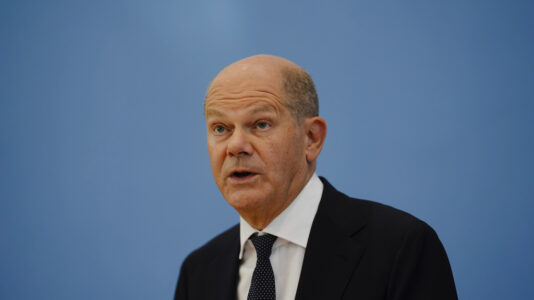When the wind stopped blowing recently in Poland, many companies were left without any power. Luckily, no households were affected, but due to the power shortages, power prices jumped by several dozen percent.
Not all entities responded to requests from Poland’s transmission system operator (PSE) for additional capacity or to limit consumption. Germany and Sweden did ultimately come through with exports, as well as Ukraine, which needed to dump some of its excess energy, writes Poland’s Business Insider.
The fact that Ukraine sent electricity to Poland is ironic, as KO MP Paweł Kowal recently told listeners on Radio Zet that Poland has to sell “cheap electricity” from its coal-fired power plants minus any Emissions Trading Scheme (ETS) costs.
Poland has been suffering from a lack of wind since Nov. 5, according to BI, which has resulted in a drop in electricity production from wind turbines to 19.8 GWh, and the day after to 6 GWh.
The spot price set for electricity for Nov. 6, jumped to as much as PLN 882 per MWh. PSE’s eventual success in getting imports saw the price fall to PLN 543 the following day. This is still one of the highest price levels in Europe, beaten only by slightly higher prices in Romania, Hungary, Serbia, and Macedonia.
Late October, there had been a similar problem with a drop in wind, but photovoltaics covered the shortfall. Now, as days are getting shorter, there is also less and less energy from the sun.
This is when conventional power plants have to step in, and there are still mainly coal-fired plants in Poland. But the costs of running these currently, due to EU regulations on emissions, make them unprofitable.
“By the start of the 2030s, if we do not manage to extend the life of coal-fired units in any way, and there is a high risk that we will not succeed for technical reasons, regardless of legal solutions, we will need about 12 GW of gas power (…) and we currently have 3 GW of contracted power,” said Grzegorz Onichimowski, president of PSE, at a press conference.
Meanwhile, the recent drop in wind turbine production was not compensated by the launch of the largest gas-fired power plant in Poland. Electricity production from gas has been breaking daily records, but it could not compensate for the losses in wind turbine generation.
RELATED: Polish government suspends construction of Pątnów nuclear power plant
Minister of Industry Marzena Czarnecka said at the same conference that coal sources will be replaced by nuclear ones. Unfortunately, the first nuclear power plant in Poland is not scheduled to start operating until 2040, and experience shows that delays are to be expected with such investments.
Either way, a situation where there is a lack of power in the Polish system is bad for the economy. For investors, the risk of a plant or other facility being left without electricity is an even greater concern than a lack of workers.






